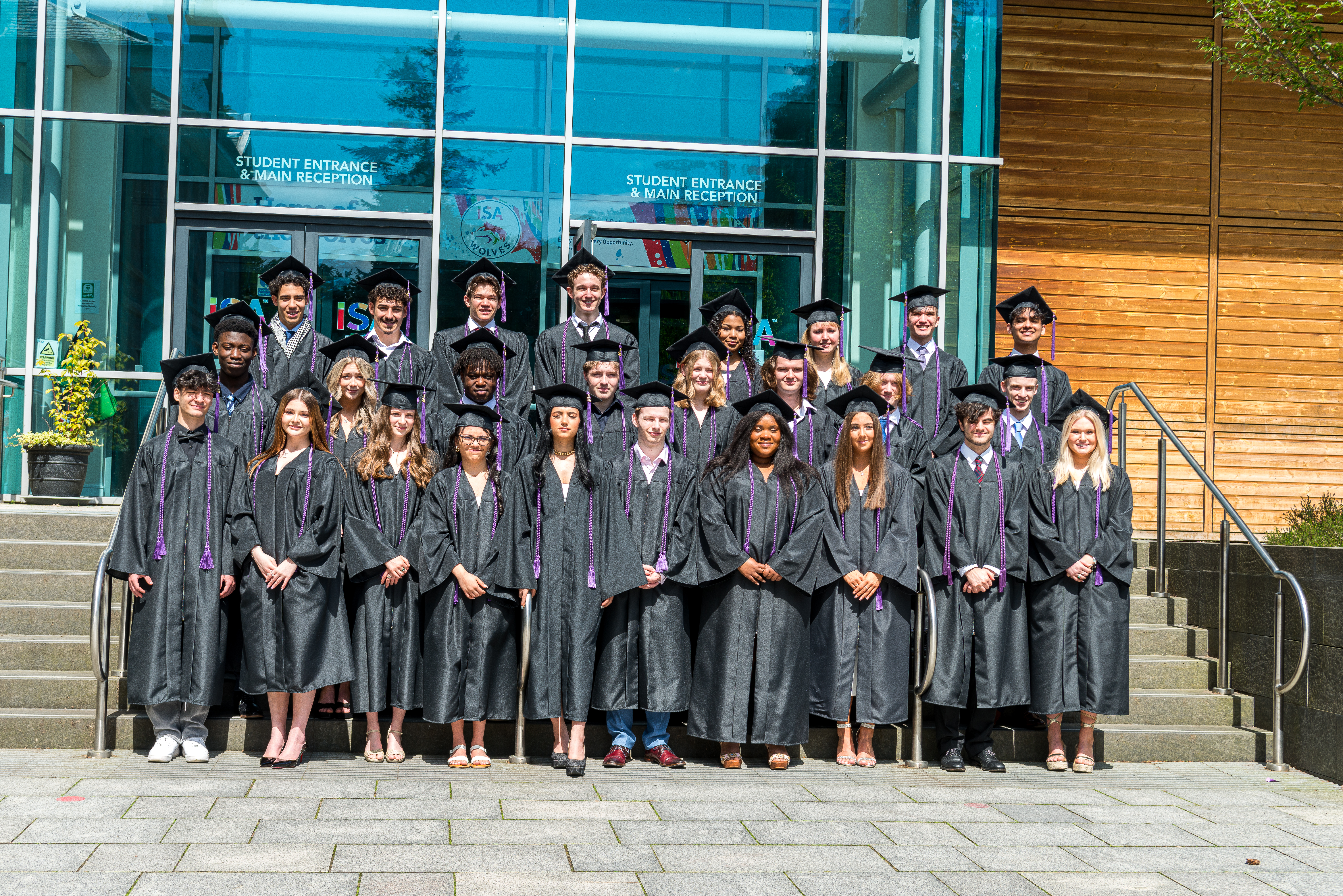
Celebrating the achievements of our IB students
At ISA, the IB Diploma is the final two years of a four-year high school diploma which keeps students’ options open. They continue to study English, mathematics, humanities, science and a foreign language until they are 18 with the option of an arts or design subject or an additional humanities or science subject. It also means they start their university studies with a far greater breadth than UK peers.
This year, around half of our Class of 2024 came from the local area with the other half from different parts of the world. However, the great majority of them have chosen to stay in Scotland for the next step in their education.
Our 2024 graduates have secured places to study engineering, business, history, politics, film & media, physiotherapy, computer science, linguistics, English, biological sciences, chemistry, psychology and criminology in everywhere from Scottish universities in Edinburgh, Glasgow, Aberdeen and Stirling, to English universities including Northampton, Northumbria, Lancaster, Manchester and University of the Arts in London. Some of the 2024 cohort will be moving overseas to study at universities in the US, Canada, the Netherlands and France.
“I think it’s fair to say that our Admissions Team and our academics are big fans of the IB and view it favourably. It provides a very good preparation for university study” – University of Aberdeen spokesperson
The Class of 2024 represents two emerging phenomena - locals choosing an international education, and expatriates choosing to stay in Scotland, post-secondary. The Scottish government estimates that around a quarter of students at Scottish universities are from abroad.
ISA remains unique in Northeast Scotland, but it is part of a growing trend worldwide. According to ISC Research, there are currently 6.5 million students studying in 13,192 international schools - a growth of 53% in 10 years. Incredibly 80% of these students are from the schools’ host countries.
ISA’s graduating class is not rare. So, what is the attraction of an international education both for the students themselves and the universities they graduate into?
There is no single definition of an international school. They can be owned and run by governments, education groups, charities or private individuals. The most popular language of instruction is English, but many other languages are used as well. They don’t follow national curriculums, but there is no single international curriculum either. Although host country governments inspect these ‘visiting’ schools, there is no single worldwide organisation that validates them.
However, international schools have developed distinct identities in response to common challenges. The most obvious being both what and how to teach students who both come from many different nations and may go back to them. National systems present history from a single perspective and there is an agreed canon for literature. International students have to consider other points of view.
This is probably why the IB is becoming the most popular of international curriculums. It offers rigour in academic concepts and skills, but gives students choice around content; built into its courses is a requirement to consider multiple perspectives - something that a recent IB graduate considered her “greatest takeaway” from the IB:
“It opened my eyes and now I have no limits.” - Abril, ISA graduate
Research from US and UK admissions officers show universities rate the IB at:
- 71% for open-mindedness (compared to 26% for Scottish Highers and 15% for A levels)
- 76% for self-management (compared to 30% for Scottish Highers, 26% for A levels)
The IB also allows students to delve into their own interests, carrying out their own research projects. Showing this kind of initiative is not easy, but something Alejo is clear about when talking to current Diploma students:
“The effort is worth it! … everything you learn will be very useful for starting university: you will have already acquired a lot of tools for studying, researching and carrying out practical work.” - Alejo, ISA graduate
For all their diversity, ISA’s Class of 2024 had one point of agreement - the IB Diploma was a challenge! But students with a real range of ability and interests will leave with a first-rate qualification.
“IB gives you a taste of everything … Continue to push yourself through…. You will surprise yourself with what you can achieve.” Anna-Sophia, ISA graduate.
Congratulations to the Class of 2024! All at ISA wish you continued success in the future!




